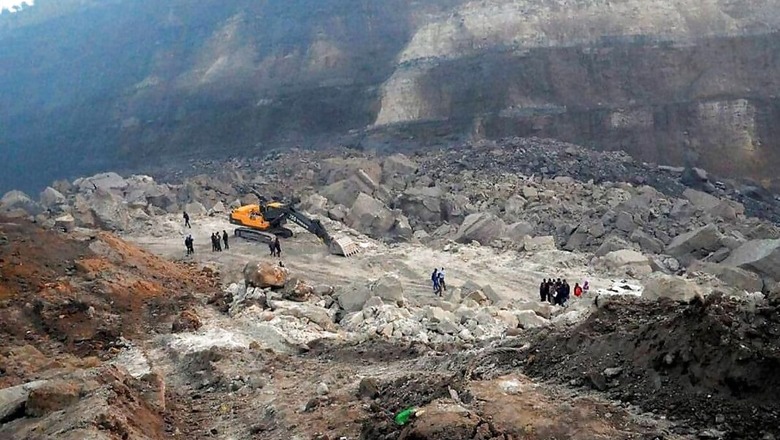
views
The auction regime put the nation back by one generation with uncertain future for the growth of country's mineral resources and continued dependence on ever-increasing imports, miners' body FIMI has said. It also stressed that it is high time for India to deliberate whether auction is the right policy instrument for mineral development.
Auction did not also prove to be as transparent or fair as was thought, Federation of Indian Mineral Industries (FIMI) Secretary General R K Sharma has said. "Auction has neither served public good nor led to fair allocation of resources. The sole focus to maximise revenues for the states has adversely affected long-term mineral development in the country and socio-economic benefits in mining areas," Sharma said.
With a view to analyse the impact and efficacy of the auction of mineral resources, FIMI said that it has undertaken an in-depth study entitled "Auction of Mineral Resources – an anatomy". As per the study, the 'auction' has neither brought transparency nor expected revenues to the States. Rather the system has brought scare among the consumers/ industries about the availability of raw materials which led to high and unsustainable bids, costly raw materials, making the industries unviable, leading to their imports, and foreign exchange outgo.
Not only this, not a single greenfield mining project coal or non-coal has come into operation. The country continues to import more and more coal and other metals. Auction has even halted operation in previously working mines having valid environment and forest clearances. This has resulted in production and job losses, upsetting the socio-economic life of people of the areas where working mines were closed down.
"For few mines which could start, auction has become a winner's curse," it said. Before auction, 37 coal mines were operational, after auctioned/allotted only 20 coal mines have come into operation.
Auction has not only made the operational mines unviable/difficult to operate, but also reduced the total coal production from these mines from 42.88 million tonnes (MT) in 2014-15 to 30.04 million tonnes in 2018-19. Generating more revenues for the exchequer has been one of the prime objectives for auction of coal.
After auction/allotment, state governments were able to gain more revenues, i.e. Rs 2,025.61 crore in 2018-19. However, auction/allotment resulted in production loss to the tune of 12.84 million tonnes in 2018-19 in comparison to 2014-15, which had to be compensated through imports worth Rs 5,319.74 crore. Thus, the nation's expenditure on imports was 2.63 times than the revenue generated through coal auction.
In case of commercial coal blocks auction, which happened last year, out of 19 coal blocks auctioned, 17 blocks are fully explored (four previously operational/under advanced stage of operation) and two blocks are partially explored. These 19 auctioned coal blocks expected to produce around 51 million tonnes per annum at their peak rated capacity. However, there would be no substantial increase in total coal production immediately because of the fact that the start-up of new mines would require anywhere around five to eight years for obtaining various clearances, approvals and completing land acquisition process.
"The question arises how far the auction at this juncture will be viable and sustainable for economy at that time as other nations are planning to switch / exit to a better option for power generation than a fossil fuel like coal," FIMI said.
.
Read all the Latest News, Breaking News and Coronavirus News here



















Comments
0 comment